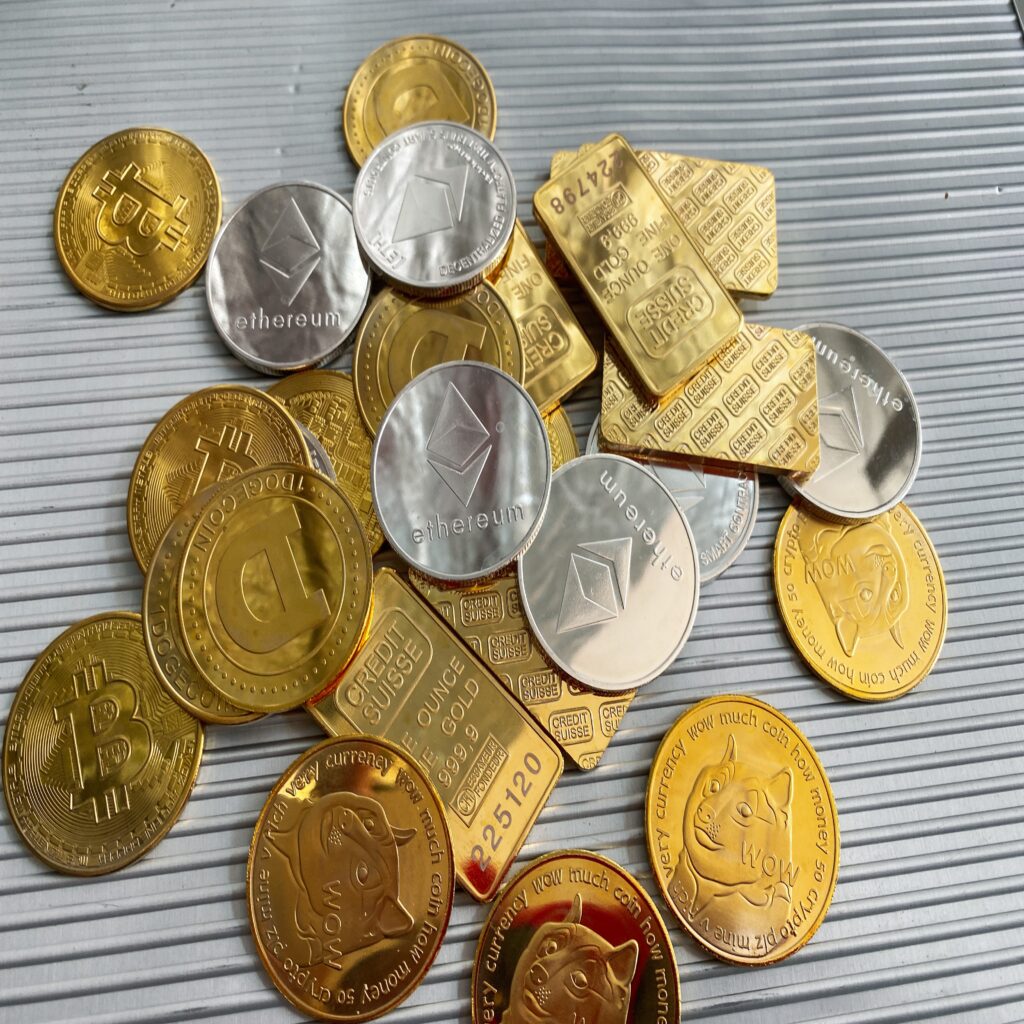Looking for a reliable investment option to protect your funds against inflation in Malaysia? Well, you might want to consider the shiny and timeless allure of gold. Despite its rich history as a store of value, many are left wondering if gold can truly serve as an effective hedge against inflation in Malaysia. In this article, we will explore the potential benefits and drawbacks of investing in gold in the Malaysian context, providing you with the insights you need to make an informed decision. So, grab a cup of coffee and let’s delve into the fascinating world of gold investment in Malaysia.
Benefits of Investing in Gold
Preservation of Wealth
Investing in gold can be a smart move when it comes to preserving your wealth. Gold has been considered a valuable asset for centuries, and its value has remained relatively stable over time. Unlike paper currency, which can be subject to inflation and devaluation, gold has maintained its purchasing power. By investing in gold, you can protect your wealth from the erosive effects of inflation and economic uncertainties.
Protection against Inflation
One of the biggest advantages of investing in gold is its ability to act as a hedge against inflation. Inflation occurs when the general level of prices in an economy increases, resulting in a decrease in the purchasing power of money. Gold has historically maintained its value during inflationary periods, and in some cases, its value has even increased. This is because gold is considered a tangible and scarce asset that holds inherent value, making it a reliable store of wealth in times of rising prices.
Diversification
Diversification is a key principle in investment strategy, and gold can play a crucial role in diversifying your portfolio. By adding gold to your investment mix, you can reduce the overall risk of your portfolio. Gold’s price movements often differ from those of stocks, bonds, and other traditional assets. This means that when other investments may be performing poorly, gold may be experiencing price appreciation, offsetting potential losses in your portfolio. By diversifying your investments, you can better protect yourself against market volatility and achieve more stable long-term returns.
Liquidity
Gold is a highly liquid asset, meaning it can be easily converted into cash or other assets. In times of financial uncertainty or market downturns, gold tends to retain its liquidity and value. Unlike other investments, such as real estate, which can take time to sell, gold can be quickly sold in various forms, including coins, bars, and even jewelry. This liquidity provides investors with the flexibility to access their funds when needed and make quick adjustments to their investment strategy.
Safe Haven Investment
Gold is often considered a safe haven investment, particularly during times of economic and geopolitical uncertainty. When markets are volatile or the value of paper currency is uncertain, investors tend to seek the stability and security of gold. This is because gold is not subject to the same risks as other investments, such as stocks or bonds, which can be influenced by economic factors and market conditions. By investing in gold, you can have peace of mind knowing that your wealth is protected in a reliable and time-tested asset.
Understanding Inflation in Malaysia
Definition of Inflation
Inflation is the rate at which the general level of prices for goods and services is rising, and subsequently, the purchasing power of currency is falling. In Malaysia, inflation is primarily measured by the Consumer Price Index (CPI), which tracks changes in the prices of a basket of commonly consumed goods and services. When the CPI increases, it indicates that the cost of living is rising and the value of money is decreasing.
Factors Affecting Inflation in Malaysia
There are several factors that can influence inflation in Malaysia. These include:
Demand-side factors: When demand for goods and services exceeds supply, it can lead to an increase in prices. Factors such as population growth, consumer spending, and government policies can affect demand levels.
Supply-side factors: Changes in the availability of key resources or production inputs can impact the cost of production, which can then be passed on to consumers through higher prices. Factors such as raw material prices, labor costs, and technological advancements can affect supply levels.
Government policies: Monetary and fiscal policies implemented by the government can have a significant impact on inflation. For example, changes in interest rates, taxation policies, and government spending can influence the overall level of inflation in the economy.
Exchange rates: Fluctuations in the value of the Malaysian Ringgit against other currencies can affect the prices of imported goods, which can then impact overall inflation levels.
Historical Inflation Rates
In recent years, Malaysia has experienced relatively low and stable inflation rates. According to data from the Department of Statistics Malaysia, the average annual inflation rate from 2016 to 2020 was around 1.8%. However, it is important to note that inflation rates can vary from year to year and are subject to various economic factors.

Gold as a Hedge against Inflation
Historical Performance of Gold during Inflationary Periods
Throughout history, gold has demonstrated its ability to preserve wealth and act as a hedge against inflation. During periods of high inflation, the price of gold has often increased significantly, outperforming other investment assets. For example, during the inflationary period of the 1970s, triggered by rising oil prices and economic unrest, the price of gold surged, providing investors with substantial returns.
Why Gold is a Preferred Inflation Hedge
Gold is a preferred inflation hedge for several reasons. Firstly, gold is a tangible asset that holds intrinsic value. Unlike paper currency, which can be devalued by central bank policies, gold is not subject to such risks. Secondly, gold has a limited supply and cannot be easily replicated or created. This scarcity factor contributes to its value and makes it an attractive investment during inflationary periods. Finally, gold has a long history as a store of value, dating back thousands of years. This historical track record further enhances its reputation as a reliable inflation hedge.
Relationship between Gold Prices and Inflation
The relationship between gold prices and inflation is complex and can be influenced by various factors. In general, gold prices tend to rise during periods of high inflation, as investors seek to protect their wealth from the eroding effects of rising prices. However, it is important to note that gold prices are also influenced by other factors, such as market demand, global economic conditions, and investor sentiment. Therefore, while gold can act as a hedge against inflation, its price movements may not always perfectly align with inflation rates.
Gold vs. Other Inflation-Linked Assets
While gold is often regarded as a reliable inflation hedge, there are other investment assets that can also provide protection against inflation. These include real estate, commodities, inflation-linked bonds, and certain stocks. Each asset class has its own unique characteristics and performance during inflationary periods. Therefore, it is important to consider a diversified portfolio that includes a mix of different assets to effectively hedge against inflation.
Potential Risks of Investing in Gold as an Inflation Hedge
While gold can be an effective hedge against inflation, it is not without its risks. One of the main risks is the volatility of gold prices. Gold prices can experience significant fluctuations, which can result in short-term losses for investors. Additionally, gold does not generate any income or dividends, unlike stocks or bonds. Therefore, investors who rely on regular income from their investments may find gold less attractive. Finally, investing in gold requires careful consideration of storage and security. Physical gold, such as bars or coins, needs to be stored securely, which may involve additional costs and safety concerns.
Investing in Gold in Malaysia
Availability of Gold Investments
In Malaysia, there are various avenues available for investing in gold. These include banks, specialized gold dealers, and online platforms. Banks in Malaysia offer gold investment accounts, which allow investors to buy and sell gold without physically owning the metal. Specialized gold dealers offer a range of options, including physical gold bars and coins. Online platforms also provide opportunities for buying and selling gold, usually in the form of digital gold.
Forms of Gold Investments
Investors in Malaysia have different options when it comes to investing in gold. The main forms of gold investments include:
Physical gold: This includes gold bars, coins, and jewelry. Physical gold provides investors with the tangible ownership of the metal, which can be stored or held personally.
Gold investment accounts: Banks in Malaysia offer gold investment accounts, where investors can buy and sell gold electronically. The gold is stored in the bank’s secure vaults, and investors have the flexibility to convert their holdings into cash at any time.
Gold Exchange-Traded Funds (ETFs): Gold ETFs are investment funds that are traded on the stock exchange. These funds invest in physical gold and allow investors to gain exposure to the price movements of gold without owning the metal directly.
Buying and Storing Physical Gold
If you choose to invest in physical gold, it is important to consider the process of buying and storing the metal. When buying physical gold, it is advisable to purchase from reputable dealers or banks to ensure the authenticity of the gold. Storing physical gold requires consideration of security and safety measures. Options for storing physical gold include home safes, safety deposit boxes at banks, or third-party storage facilities.
Gold Investment Accounts
Gold investment accounts offered by banks in Malaysia provide investors with a convenient and secure way to Invest in gold. These accounts allow investors to buy and sell gold electronically, without the need to physically own or store the metal. One of the main advantages of gold investment accounts is the ease of transactions and the ability to convert gold holdings into cash quickly. However, it is important to understand any fees or charges associated with the account and consider the bank’s reputation and security measures.
Gold Exchange-Traded Funds (ETFs)
Gold ETFs are investment funds that are traded on the stock exchange and provide investors with exposure to the price movements of gold. These funds typically invest in physical gold and aim to track the performance of the gold price. Gold ETFs offer several advantages, including ease of buying and selling, liquidity, and diversification. However, investors should be aware of any fees or expenses associated with the ETF, as well as the risks involved in investing in the stock market.

Factors to Consider Before Investing
Financial Goals and Risk Tolerance
Before investing in gold or any other asset, it is important to assess your financial goals and risk tolerance. Consider why you want to invest in gold and what you hope to achieve from your investment. Are you looking for long-term wealth preservation, protection against inflation, or diversification? Understanding your financial goals will help you determine how much to invest in gold and how it fits into your overall portfolio. Additionally, consider your risk tolerance and ability to withstand short-term price fluctuations. Gold can be a volatile investment, so it is important to be comfortable with the potential risks involved.
Market Conditions
Market conditions can greatly impact the performance of gold and other investments. Before investing, it is important to research and analyze the current market conditions. Consider factors such as interest rates, economic indicators, geopolitical events, and global market trends. These factors can influence the price of gold and the overall investment environment. By staying informed about market conditions, you can make more informed and strategic investment decisions.
Investment Time Horizon
The investment time horizon refers to the length of time you plan to hold your gold investment. Different investment strategies are suited for different time horizons. If you have a long-term investment horizon, you may be more willing to withstand short-term fluctuations in the price of gold. On the other hand, if you have a short-term time horizon, you may need to carefully consider the timing of your investment and potential exit strategies. Understanding your investment time horizon will help you align your gold investment with your overall financial plans.
Costs and Fees
Investing in gold can involve various costs and fees that should be considered. When buying physical gold, there may be premiums or markups on the price of the metal. Additionally, there may be costs associated with storing physical gold or using third-party storage facilities. Gold investment accounts and ETFs may also have management fees or expense ratios. It is important to understand these costs and factor them into your investment decision. Consider comparing different options and assessing the overall cost-effectiveness of each investment avenue.
Tax Implications
Investing in gold can have tax implications, and it is important to understand the tax laws and regulations in Malaysia. Gold investment accounts and ETFs may be subject to capital gains tax upon selling or redeeming the investment. Additionally, holding physical gold may also have tax implications, such as sales tax or import duties. It is advisable to consult with a tax professional to understand the specific tax obligations and requirements for your gold investments.
Potential Returns and Risks of Gold Investments
Historical Returns of Gold Investments
Historically, gold has delivered impressive returns over the long term. The price of gold has experienced significant appreciation, particularly during periods of economic uncertainty and inflation. However, it is important to note that past performance is not indicative of future results, and gold prices can be volatile in the short term. While gold has the potential for attractive returns, investors should be prepared for temporary price declines and fluctuations.
Factors Affecting Gold Prices
Gold prices are influenced by a variety of factors, including supply and demand dynamics, economic conditions, geopolitical events, and investor sentiment. Changes in these factors can cause gold prices to fluctuate. For example, if there is increased demand for gold as a safe haven asset during times of economic uncertainty, prices may rise. Conversely, if there is reduced demand or increased supply, prices may decline. Understanding these factors and staying informed about market trends can help investors make more informed decisions.
Currency Fluctuations
Gold is priced in US dollars globally, which means that currency fluctuations can affect the price of gold. In Malaysia, fluctuations in the exchange rate between the Malaysian Ringgit and the US dollar can impact the price of gold. When the Ringgit strengthens against the dollar, the price of gold in Ringgit terms may decline, and vice versa. Investors should consider the potential impact of currency fluctuations on their gold investments, particularly if they have exposure to foreign currencies.
Market Volatility
Gold prices can be subject to significant volatility, particularly during periods of economic uncertainty or market turbulence. This volatility can lead to short-term price fluctuations and make gold a potentially risky investment. However, it is important to note that gold’s long-term performance has shown resilience and stability. Investors should be prepared to withstand short-term volatility and focus on the long-term potential of gold as a wealth preservation asset.
Counterparty Risks
When investing in certain forms of gold, such as gold ETFs or gold investment accounts, investors should be aware of counterparty risks. Counterparty risk refers to the risk that the entity holding or managing the gold investment may default or fail to fulfill its obligations. For example, if an ETF provider becomes insolvent, investors may face challenges in redeeming their gold holdings. Similarly, if a bank offering gold investment accounts goes bankrupt, investors may face similar risks. It is important to research and choose reputable and trustworthy providers to mitigate counterparty risks.

Expert Opinions and Recommendations
Views of Financial Experts
Financial experts have varying views on investing in gold as a hedge against inflation. Some experts believe that gold can provide a sense of security and stability during inflationary periods, while others argue that its performance may be influenced by various factors beyond inflation. Ultimately, the decision to invest in gold should be based on individual financial goals, risk tolerance, and the advice of trusted financial advisors.
Recommendations for Gold Allocation in Portfolio
The allocation of gold in a portfolio will depend on various factors, including an individual’s risk tolerance, investment goals, and time horizon. As a general guideline, financial experts recommend allocating between 5% and 15% of a portfolio to gold or other precious metals. This allocation can provide diversification and potential protection against inflation. However, it is important to consider individual circumstances and consult with a financial advisor to determine the appropriate allocation for your specific investment needs.
Considerations for Long-Term Investors
Long-term investors should consider certain factors when investing in gold. Firstly, it is important to have a clear understanding of your financial goals and how gold fits into your long-term investment strategy. Secondly, consider the potential risks and volatility of gold and be prepared to hold your investment for an extended period. Finally, periodically review and rebalance your portfolio to ensure that your gold allocation remains in line with your long-term objectives.
Diversifying Gold Investments
Diversification is a key principle in investment strategy, and it applies to gold investments as well. Rather than investing in a single form of gold or a single gold investment avenue, consider diversifying your gold investments. This can include a mix of physical gold, gold investment accounts, and gold ETFs. By diversifying your gold holdings, you can reduce risk and potentially enhance returns by benefiting from the various characteristics of different gold investments.
Best Practices for Investing in Gold
Research and Education
Before investing in gold, it is crucial to conduct thorough research and educate yourself about the various aspects of gold investments. Understand the different forms of gold, the mechanics of buying and selling, the factors influencing gold prices, and the potential risks involved. By arming yourself with knowledge, you can make informed decisions and maximize the potential benefits of investing in gold.
Dollar-Cost Averaging
Dollar-cost averaging is an investment strategy that involves regularly investing a fixed amount of money in an asset over a long period, regardless of the asset’s price. This strategy can be applied to gold investments by consistently buying a fixed amount of gold at regular intervals. This approach can help mitigate the impact of short-term price fluctuations and potentially lower the average price paid for gold over time.
Setting Realistic Expectations
Investing in gold requires setting realistic expectations. While gold has the potential for attractive returns, it is important to understand that its price can be volatile in the short term. Avoid making investment decisions based on short-term price movements or speculative trends. Instead, focus on the long-term potential of gold as a wealth preservation asset.
Monitoring and Rebalancing
Investors should regularly monitor their gold investments and periodically rebalance their portfolios. Monitoring involves staying informed about market trends, economic indicators, and geopolitical events that can impact gold prices. Rebalancing involves adjusting the allocation of gold in your portfolio to align with your investment goals and risk tolerance. By monitoring and rebalancing, you can ensure that your gold investments remain in line with your long-term strategy.
Seeking Professional Advice
Investing in gold can be complex, and it is advisable to seek professional advice from trusted financial advisors. A qualified advisor can help assess your financial goals, evaluate different investment options, and provide personalized recommendations based on your individual circumstances. An experienced advisor can also provide guidance on tax implications, risk management, and portfolio diversification.

Taxation and Reporting
Tax Obligations for Gold Investments
Gold investments in Malaysia can have tax implications that should be considered. Depending on the form of gold and the holding period, capital gains tax may be applicable upon selling or redeeming gold investments. However, specific tax obligations can vary, and it is important to consult with a tax professional to understand the applicable tax laws and regulations.
Reporting Requirements
In Malaysia, there are reporting requirements for certain types of gold investments. For example, purchases or sales of physical gold exceeding a certain threshold may need to be reported to the relevant authorities. Additionally, certain gold investment accounts or ETFs may require reporting of holdings or transactions. It is important to comply with these reporting requirements to ensure compliance with the law and avoid any penalties or disputes.
Tax Treatment of Different Gold Investments
Different forms of gold investments may have different tax treatments in Malaysia. Physical gold, such as bars and coins, may be subject to sales tax or import duties. Gold investment accounts and ETFs may be subject to capital gains tax upon selling or redeeming the investment. It is advisable to consult with a tax professional to understand the specific tax treatment for each type of gold investment.
Conclusion
Investing in gold can provide a range of benefits, including wealth preservation, protection against inflation, diversification, and liquidity. In Malaysia, gold has historical significance and is considered a safe haven investment, particularly during times of economic uncertainty. However, before investing in gold, it is important to understand the fundamentals of investing, evaluate your financial goals and risk tolerance, and consider the specific factors that can impact gold prices in Malaysia. By following best practices, conducting thorough research, and seeking professional advice, you can make informed decisions and potentially benefit from gold as a long-term wealth preservation asset.









